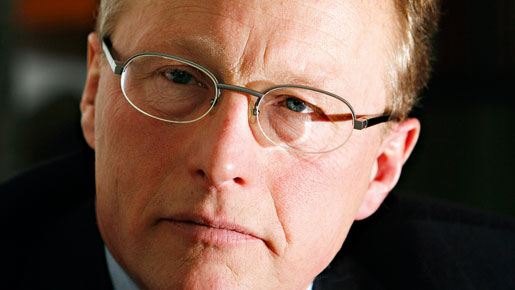
As far as career achievements go, serving as Carlsberg’s CEO is not a poor accomplishment. But when the Danish beer giant’s longstanding CEO received the offer to take the same position at AP Møller-Maersk, temptation won over loyalty. Incidentally, Maersk is the biggest company in his home country, Denmark, but his accepting the position created something of a wave.
When leaving Calrsberg after 20 years, Anderson said: “I am leaving a company in very good shape – with great leaders, employees and strong brands. The Carlsberg Group and I have been on a unique journey together. It could have gone on for many years if it wasn’t for this new opportunity at AP Møller-Maersk, which I regard as a very exciting challenge at the right time of my life.”
Pastures new
The Carlsberg management board reacted in a way that was just as mature and generous as that of Andersen. “Nils S. Andersen has made a tremendous contribution to Carlsberg’s success and under his leadership Carlsberg has developed into a very strong, international group with good prospects for further growth and value creation for our shareholders. We are sorry that Nils has decided to leave Carlsberg, but we also congratulate him with yet another very exciting position,” said Povl Krogsgaard-Larsen, chairman of Carlsberg’s Board of Directors.
Andersen’s appointment at Mearsk made him the company’s fourth group CEO and partner. Not entirely new to the brand, Andersen has counted among the company’s Board of Directors since 2005. Based in Copenhagen, the company operates subsidiaries and offices in more than 135 countries across the world, employing around 108,000 staff. One of its most significant subsidiaries, Maersk Line, is the largest container shipping company in the world with a fleet encompassing more than 500 vessels and 1,900,000 TEU.
Planting seeds for the future
Andersen was born in Århus. He is married to Kirsten Andersen, the daughter of the former CEO of Danish Bank − one of Scandinavia’s major banks in which a Maersk owns a 20 percent stake. With his fair hair and unmistakably Danish accent, Andersen could be described as a typical Scandinavian. He exudes confidence and boasts a reported net worth of $30m, most of which has been gathered during his time at Maersk. A business mogul with fingers in many pies, and prestigious ones at that, Andersen serves as chairman of the EU-Russia Industrialists’ Round Table, and he remains a board member for the Carlsberg Group.
As for his modus operandi at Maersk, in line with any CEO at the helm of a global company, Andersen is shifting focus to increase trade in emerging markets. “In the last three years, we have hardly made any investments that haven’t focused on emerging or growth markets,” said Andersen in an interview with the Financial Times in the summer of 2011. “We now operate in Africa, Latin America and South America, often sailing out of Asia. Most port projects that are under development are based in developing markets. We are very much riding the wave of the emerging market trend, and as a result, 40 percent of our turnover comes from these territories. In the future, we’re looking to consolidate further within this area.”
Full steam ahead
The fact that most business is now directed towards emerging markets marks quite a shift for the company, and will no doubt present its CEO with an interesting challenge. In the past, the company used fairly simple trade routes, moving ships to and from Europe and Asia or North America. Shifting the focus to markets without established shipping cultures might put Mearsk and its ambitious CEO in a pickle, mainly as the infrastructure of emerging economies might not yet be sophisticated enough to handle increased trade, particularly not of the Maersk scale.
To make the situation trickier, Andersen has indicated that more advanced, and much larger ships might be brought to market in the future. “We have plenty of money to invest in modern, breakthrough ships and that advance will take us forward. We’re a company that is profitable in the long term and we’re looking to grow long term, too.”
Cuts don’t have to be costly
Something of a Scandinavian business specialty is competitive pricing – Ikea, H&M and jeans label Cheap Monday for example. Maersk very much fits into this category, too, and its price slashing antics have infuriated the competition. “We are defending our market share and growing it further by offering excellent service at competitive cost levels,” said Andersen in a recent interview. Indicative of Andersen’s nature as a businessman is that he’s a fighter inclined to stay ahead of the game, and one of his most potent weapons is a competitive price list.
Another important business booster is acquisitions. Since Andersen began his tenure at Maersk four years ago, he has closed a number of deals. At the end of 2010, it was announced that the company would acquire a 40 percent stake in the Polvo field, as well as a 20 percent share in the Wahoo discovery. In addition, the company announced that it had a 27 percent stake in the Itaipu discovery; and another acquisition on the agenda is SK do Brasil, which is a unit of South Korea’s largest oil processor, SK Energy Co.
Perhaps to dilute the negative press the cost-cutting antics have attracted from rival players, Andersen has attempted to steer the company in a much more eco-friendly way. Reaping the rewards of the efforts, the group bagged the “Environmental Awareness Award” in 2010, scoring points for successfully integrating environmental awareness and sustainability into the business strategy, and especially focusing on Maersk Line’s commitment to transparency and open innovation.

